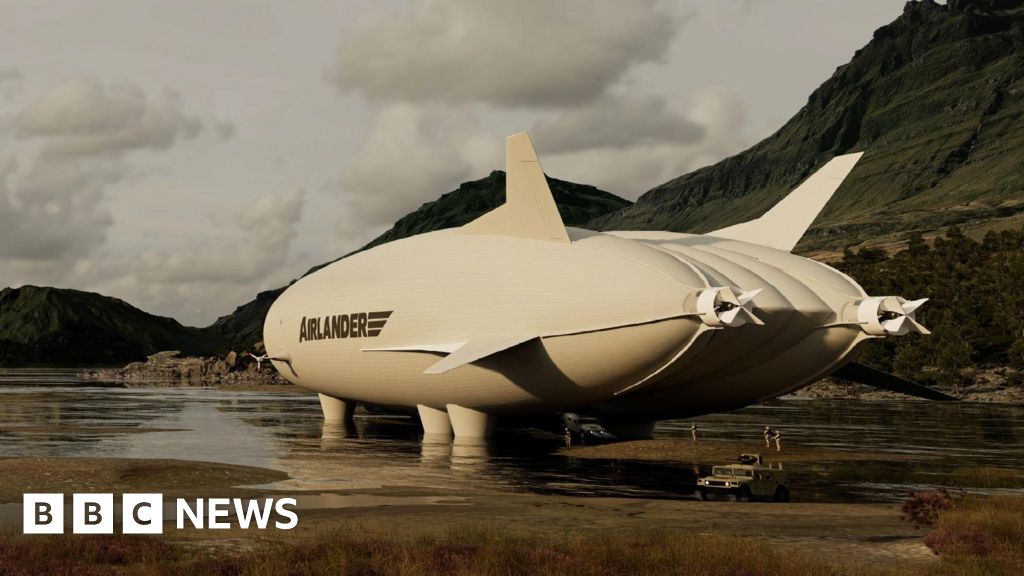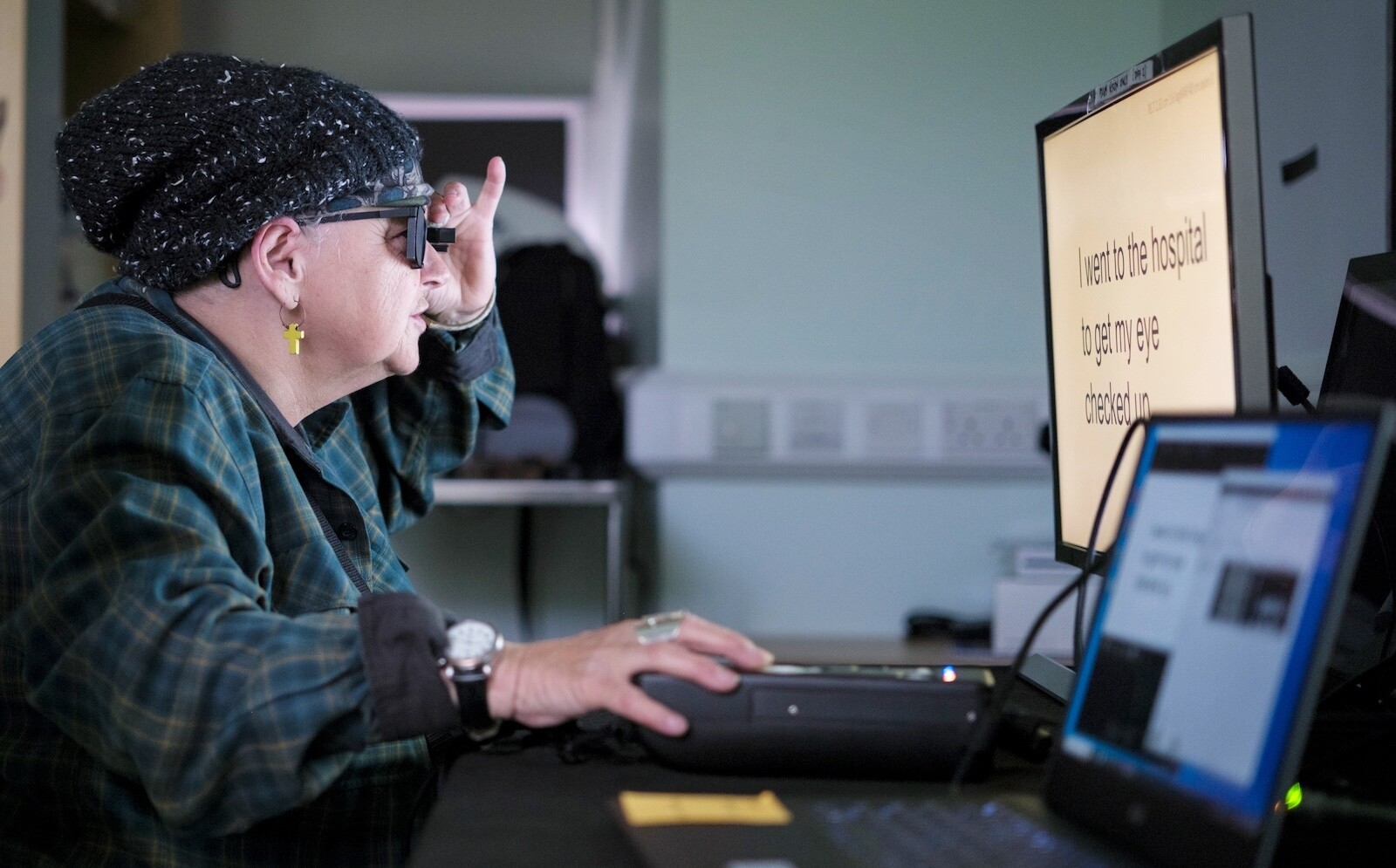– Advertisement –
– Advertisement –
– Advertisement –
BEIJING, Oct. 24 (Xinhua/APP): “Radiance: Ancient Gold Ornaments from the Collection of the Hong Kong Palace Museum” opened at the Capital Museum Wednesday.
The exhibition showcases over…
– Advertisement –
– Advertisement –
– Advertisement –
BEIJING, Oct. 24 (Xinhua/APP): “Radiance: Ancient Gold Ornaments from the Collection of the Hong Kong Palace Museum” opened at the Capital Museum Wednesday.
The exhibition showcases over…

The company behind the Airlander 10 giant hybrid aircraft has secured its first reservations for use in the military.
Bedford-based Hybrid Air Vehicles (HAV) said three had been reserved by an “innovative defence contractor” looking to make use of Airlander’s unique capabilities.
Airlander 10, which has not yet gone into production, was expected to initially be certified for civil use, but HAV said its versatile nature meant it could be modified to meet the needs of the military market.
George Land, executive director of sales at HAV, said they were “pleased to be working with an undisclosed customer to provide three aircraft for further customisation”.
The Airlander is a combination of an airship and a plane and currently uses four combustion engines and gases to take-off and in flight.
HAV said the Airlander could:
The company said new threats across the globe required new solutions, and Airlander would directly respond to current and emerging threats.
Work on a production facility started last December in Doncaster where it was expected airships would be built and tested in 2026.
The company had previously said the European-based Air Nostrum Group had reserved 10 Airlanders, but that number had increased to 20, for delivery by 2027.
The Airlander has been designed to be about 320ft (98m) long, with a cabin underneath, making it the world’s longest aircraft.
Mr Land said: “Its versatility, high payload, and endurance have always given Airlander 10 obvious advantages over other aircraft in Command, Control, Communications, Computers, Intelligence, Surveillance, and Reconnaissance (C4ISR).
“As warfare evolves to meet current threats this capability is ever more valuable, and we have worked hard to showcase the aircraft’s capabilities.”
He added that they expected other military reservations to follow.
This request seems a bit unusual, so we need to confirm that you’re human. Please press and hold the button until it turns completely green. Thank you for your cooperation!

In a medical breakthrough that sounds like the stuff of science fiction, blind people have been…

People with post-COVID “brain fog” have unusually high numbers of a receptor that mediates neurotransmission in the central nervous system, Japanese researchers have found.
According to a new study by…

The prestigious Booker Prize organisers have launched a new prize for children’s fiction, featuring a panel of child and adult judges.
The Children’s Booker Prize, which will launch in 2026 and be awarded annually from 2027, will celebrate the…

Australian researchers have identified two nervous system components that drive tumor growth in gastrointestinal cancers, creating promising new avenues for treatment with existing approved therapies.
Our gut contains its very own

Amazon has revealed the cause of this week’s hours-long AWS outage, which took everything from Signal to smart beds offline, was a bug in automation software that had widespread consequences.
In a lengthy outline of the cause of the outage published on Thursday, AWS revealed a cascading set of events brought down thousands of sites and applications that host their services with the company.
AWS said customers were unable to connect to DynamoDB, its database system where AWS customers store, due to “a latent defect within the service’s automated DNS [domain name system] management system”.
DynamoDB maintains hundreds of thousands of DNS records. It uses automation to monitor the system to ensure records are updated frequently to ensure additional capacity is added as required, hardware failures are handled and traffic is distributed efficiently.
The root cause of the issue, AWS said, was an empty DNS record for the Virginia-based US-East-1 datacentre region. The bug failed to automatically repair, and required manual operator intervention to correct.
AWS said it had disabled the DynamoDB DNS planner and DNS enactor automation worldwide while it fixes the conditions that led to the outage and adds extra protections.
The issue also caused outages for other AWS tools as a result.
Platforms including Signal, Snapchat, Roblox, Duolingo, as well as services such as banking sites and the Ring doorbell company were some of the 2,000 companies affected by the outage, according to Downdetector – a site that monitors internet outages – with more than 8.1m reports of problems from users across the world.
While services were restored in a matter of hours, the impact of the outage was felt widely.
Customers of Eight Sleep – a smart bed company that connects to the internet to control the temperature and incline of a person’s bed – found they were unable to adjust the bed or the temperature of the bed during the outage because they were unable to connect to the bed in their phone app.
The company’s chief executive, Matteo Franceschetti, apologised to customers on X and this week rolled out an update to its services that would allow users to control the bed’s critical functions via Bluetooth in the event of an outage.
Dr Suelette Dreyfus, a computing and information systems lecturer at the University of Melbourne, said the outages showed how dependent the world was on single points of failure on the internet.
“That single point isn’t just AWS – they’re the biggest cloud provider with 30% or so of the market – but rather the cloud as a whole, which is basically just three companies,” she said.
“The internet was designed to be resilient; many other channels existed for routing around problems or attacks, but we’ve lost some of that resilience by becoming so dependent on a handful of giant tech companies to provide not just data storage but also house data services.”